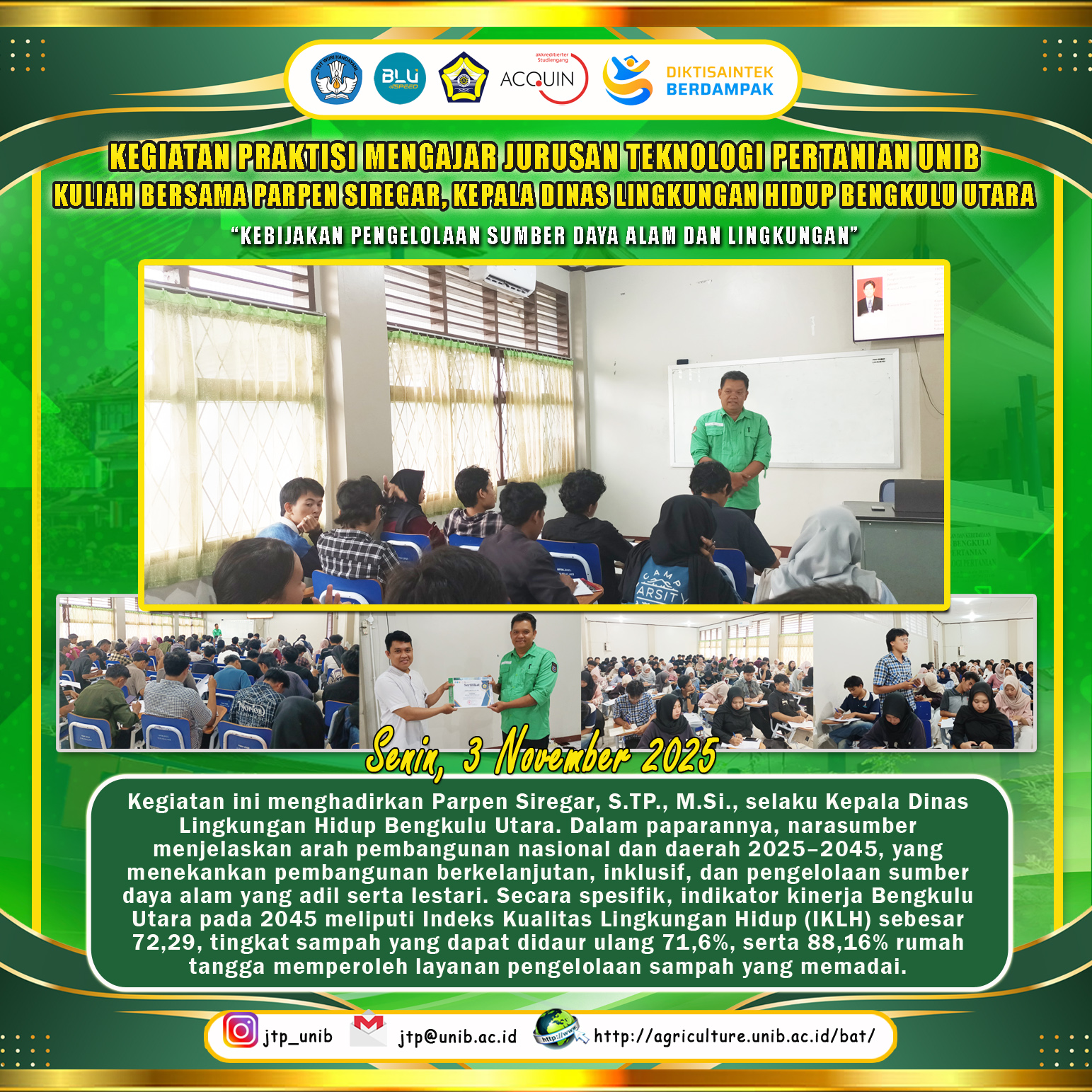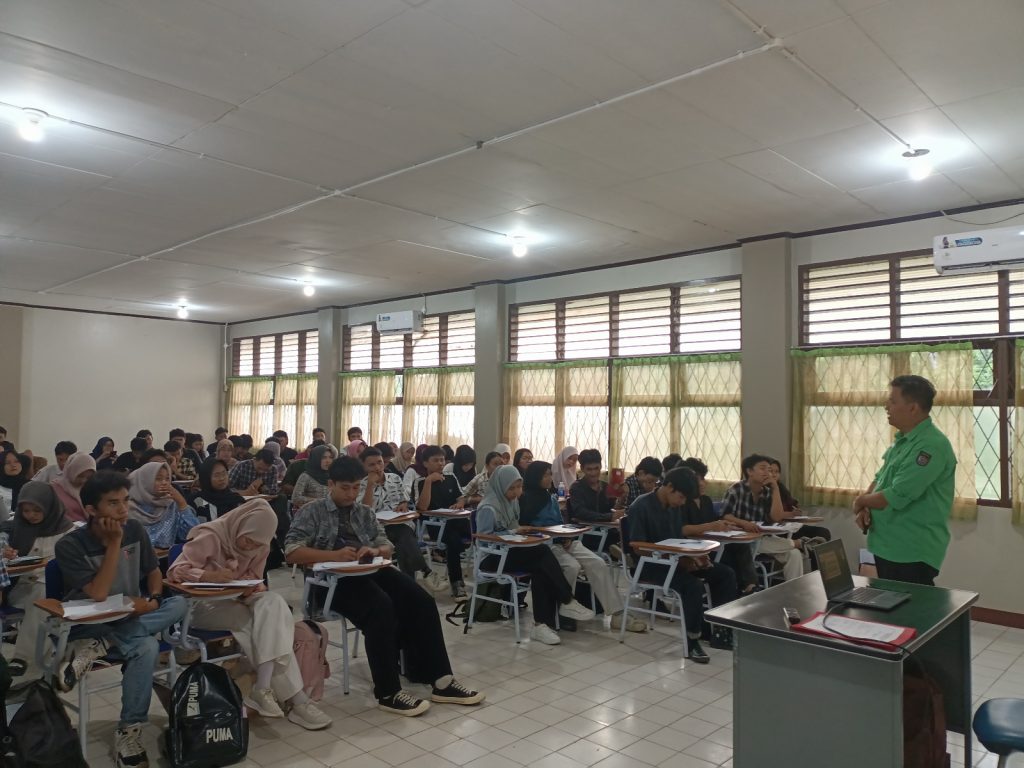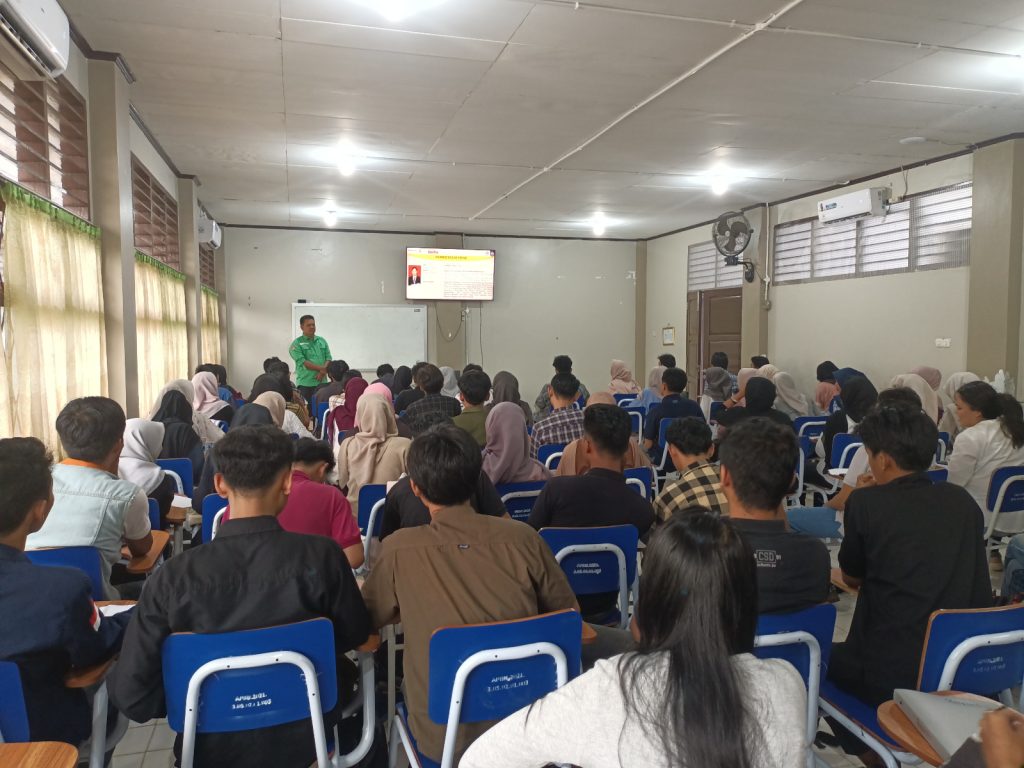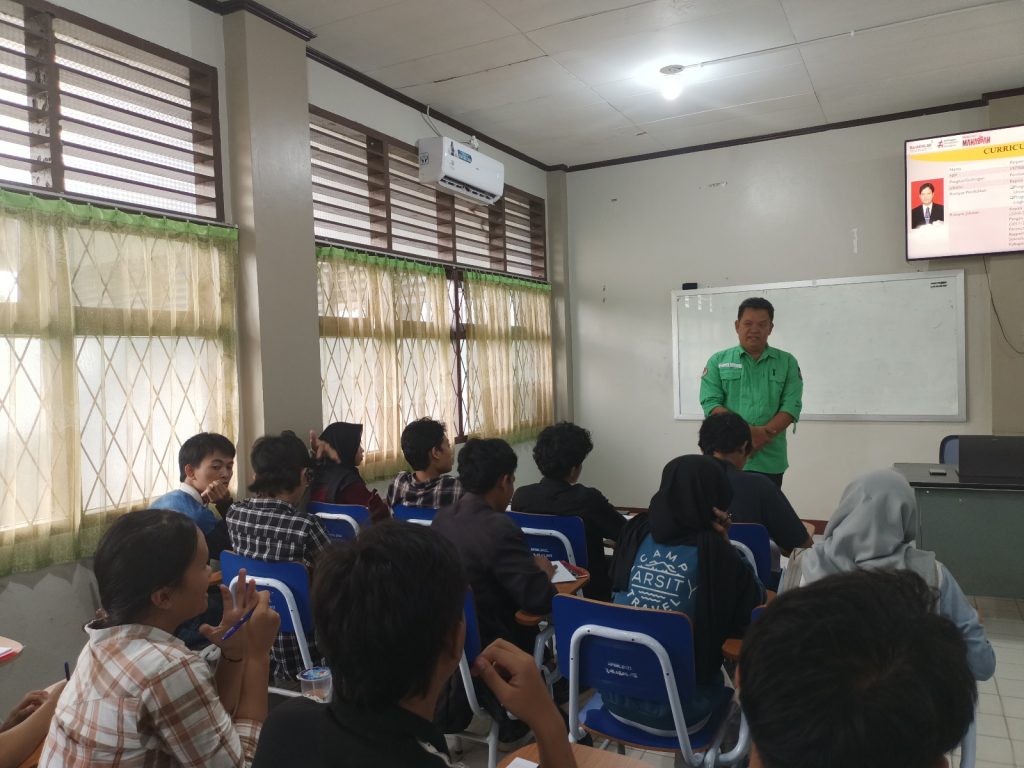
Implementation of Teaching Practitioner Activities, Parpen Siregar as Head of the North Bengkulu Environment Agency Gives a Lecture on Strategy and Policy for Natural Resources and Environmental Management in North Bengkulu
The Agricultural Industrial Technology Study Program, Department of Agricultural Technology, Faculty of Agriculture, University of Bengkulu, carried out Teaching Practitioner activities in the Introduction to Natural Resources and Environment course on Monday, November 3, 2025 at 16.00 WIB, located in Room 2 GB 1 of the University of Bengkulu.
This activity presented Parpen Siregar, S.TP., M.Si., as the Head of the North Bengkulu Environmental Agency, as the main resource person with the topic “Natural Resources and Environmental Management Policy”.
In his presentation, the resource person explained the direction of national and regional development 2025–2045, which emphasizes sustainable, inclusive, and fair and sustainable natural resource management. Specifically, North Bengkulu’s performance indicators in 2045 include the Environmental Quality Index (IKLH) of 72.29, the level of recyclable waste of 71.6%, and 88.16% of households receive adequate waste management services.
Furthermore, Parpen Siregar explained the vision and mission of North Bengkulu 2025–2029, which focuses on sustainable economic growth, social transformation and improving the quality of human resources, integrated infrastructure development, and governance reform. Of the 40 priority programs, some of them are relevant to the environment, including environmentally friendly waste management, local-based food security, development of regional superior products, and strengthening the creative industry and green economy.
In the discussion session, the speakers also highlighted the achievements and problems of natural resource and environmental management, including the increase in IKLH from 61.32 (2017) to 77.39 (2024), although the management of waste facilities still faces obstacles. At the local level, key challenges include deforestation, water pollution, coastal abrasion, illegal mining activities, and reduced biodiversity.
The principles of natural resource management discussed include inter-generational sustainability, justice and democracy, protection of local culture, ecosystem system approaches, and local conformity based on community conditions. Meanwhile, the management policy direction includes climate-resilient development, circular economy, biodiversity conservation, waste management reform, low-carbon development, green job creation, sustainable forest management, and a sustainable blue economy.
Parpen Siregar also emphasized the importance of pentahelix collaboration, involving the government, academia, the business world, the media, and the community, in effective environmental management. This activity closes with an inspirational message:
“Waste management reflects the nation’s civilization. Together, we can solve environmental problems.”

This Teaching Practitioner activity is expected to provide practical and strategic insights for students in understanding natural resources and environmental management policies, as well as fostering awareness of the importance of the role of the younger generation in sustainable development.










